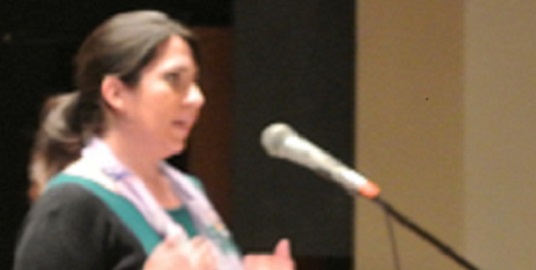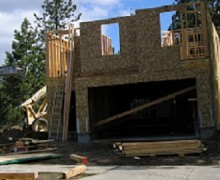Colorado Adds $23 million to CHIF, Amends Fund to Receive Future State Revenue

Colorado housing and homeless advocates working to secure dedicated revenue for state housing trust fund have already celebrated three significant victories in 2014: The Attorney General re-allocated $23 million from the states’ National Mortgage Settlement to the Colorado Housing Investment Fund (CHIF); the state legislature passed HB1017 a bill amending existing Home Investment Fund to create a Housing Trust Fund while also allocating $5 million to a state Housing Tax Credit; and an additional $4 million through the Governor’s budget to Colorado Housing Development Grant Fund. In tandem the new Housing Trust Fund and the Housing Development Grant Fund can receive dedicated revenue and operate as a state housing trust fund.
In January, Attorney General John Suthers announced that he was reallocating $23 million from Colorado’s National Mortgage Settlement (NMS) to the CHIF for use in building more affordable housing in Colorado, with special emphasis in funding affordable housing in areas hardest hit by the recent flood and wildfires. The Colorado Division of Housing, the state agency that administers the CHIF, has identified creating and preserving homes and apartments for working families, seniors, formerly homeless persons, and persons with disabilities, and repairing and constructing housing for people impacted by the September 2013 floods.
The $23 million is part of the overall $51.17 million in custodial funds Colorado recovered from the NMS. As the housing market has improved around the state, the demand for funding Housing Counseling Support and Supplemental Loan Programs disappeared. At the same time as the housing improved, the rental market tightened, and rents began to increase beyond what many Coloradans can afford. Under terms specified in the NMS, the attorney general re-allocated the under-utilized funds to meet Colorado’s most urgent housing needs. Attorney General Suthers’s decision to assign the funds to the CHIF is an indication of the success the Division of Housing had with the initial $13.2 million NMS funds allocated to the CHIF in 2012.
The CHIF funds can be used two ways: 1) short term, low interest loans to bridge the long-term permanent financing sources (a portion of loan may remain in the project as permanent debt) and 2) short term loan guarantees for new construction and rehabilitation. The CHIF funds will revolve back into the CHIF fund allowing the Division of Housing to make more loans, as the short term loans are repaid or loan guarantees are released.
House Bill 1017 is important because when Governor John Hickenlooper and Attorney General Suthers established the CHIF in 2012, it was structured soley NMS funds. House Bill 1017 does two things: Positions the Division of Housing to accept funds from any source, repurposing an existing statutory fund that will have the potential for a dedicated and dependable source of funding long-term; and creates public-private partnerships for supporting affordable housing by re-instating the State Low-Income Housing Tax Credit. The specific changes to the new housing trust fund include the definition of the fund to allow it to accept any and all kinds of revenue, and continuously appropriates the monies in the fund; the ability of the Division of Housing to charge a loan origination fee for any loans from housing trust fund; and a clarification that gifts, grants and donations may be from any source, and the fund may keep any interest earned. House Bill 1017 passed out of the House in early March, followed by the Senate on April 16. The bill was sent back to the House for concurrence. Governor is expected to sign the bill into law in the next few weeks.
The $4 million allocated to the Housing Development Grant Fund will provide funds for acquisition, rehabilitation, and new construction through a competitive application process to improve, preserve or expand the supply of affordable housing; to finance foreclosure prevention activities in Colorado; and to fund the acquisition of housing and economic data necessary to advise the State Housing Board on local housing conditions.
Through these three victories, Colorado has not only secured much-needed funding to advance affordable housing development in the state, but also raised the profile of affordable housing needs among state decision-makers. Capitalizing on this momentum, housing advocates are continuing to work with lawmakers to explore additional steps that will establish a dedicated and sustainable revenue source for affordable housing development and preservation.
“Currently, there are over 140,000 households in Colorado who are paying more 30% of their income on housing costs,” said Sara Reynolds, Executive Director of Housing Colorado. “The new resources available in 2014 will make significant progress towards addressing the unmet needs of these families – however we still have a long way to go.”
Once House Bill 1017 signed by the Governor, Housing Colorado, and the newly established Within Reach Coalition members will shift into planning mode to develop a strategy to secure dedicated and dependable funding for the newly created state housing trust fund. The Within Reach Coalition was founded by Colorado Impact to help bring a broad base of direct service providers and advocacy organizations into the campaign to establish a state housing trust fund with dedicated revenue. The coalition includes advocates for seniors, people with disabilities and victims of domestic violence, as well as food pantries, transitional housing providers and policy experts.
“Colorado is a popular state, with a growing, diverse population. A dedicated and dependable source of revenue for affordable housing is needed to meet this demand long term,” said Brad Wood, Principal of Colorado Impact. “The funding needs to be flexible to respond to natural disasters and changes in the rental and for sale markets. But most importantly, it needs to work for the Coloradans that are being priced out of the communities they call home.”
For more information contact Sara Reynolds, Housing Colorado, 1981 Blake St, Denver, CO 80202 (303-863-0124) or Brad A Wood, Colorado Impact: Center for Economic Prosperity, 1115 Broadway St. Suite 202, Denver, CO 80203 (303-884-8837)









